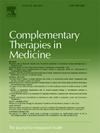Clinical evidence of acupuncture for amnestic mild cognitive impairment: A systematic review and meta-analysis of randomized controlled trials
IF 3.3
3区 医学
Q1 INTEGRATIVE & COMPLEMENTARY MEDICINE
引用次数: 0
Abstract
Background
People with amnestic mild cognitive impairment (aMCI) carry a substantial risk of developing dementia compared to non-amnestic MCI (naMCI). Several previous studies proved the remarkable effectiveness of acupuncture for MCI, but they didn't distinguish between aMCI and naMCI. We conducted this meta-analysis to systematically assess the evidence of the efficacy of acupuncture in this unique population with aMCI.
Methods
We comprehensively searched nine databases on January 09, 2024, to identify relevant articles estimating the effects of acupuncture for aMCI, and then assessed the risk of bias of the included trials utilizing the RoB 2.0 tool which included the domain of randomization process, deviation from intended interventions, missing outcome data, measurement of the outcome, selection of the reported outcome, and overall bias. The results of this meta-analysis were exhibited with forest plots. Sensitivity analyses were conducted to determine the robustness of the pooled results, and publication bias was estimated by Egger's and Begg's tests. Besides, we also performed subgroup analysis to determine whether there was a difference in therapeutic effects between four weeks and eight weeks of treatment duration. The certainty of the evidence was graded using GRADEpro GDT.
Results
A total of 15 randomized controlled trials (RCTs) involving 908 people with aMCI were included in this study. According to the meta-analysis, acupuncture treatment provided a remarkable improvement in cognitive function as assessed by Mini-Mental State Examination (MD = 1.09, 95 %CI [0.86, 1.31], p < 0.00001), Montreal Cognitive Assessment (MD = 0.93, 95 %CI [0.80, 1.07], p < 0.00001), Alzheimer's Disease Assessment Scale-Cognitive (MD = 1.00, 95 %CI [-1.23, −0.77], p < 0.00001), and P300 latency (MD = −15.40, 95 %CI [-23.68, −7.12], p = 0.0003). Subgroup analysis showed evidence that the efficacy of four weeks of acupuncture treatment was consistent with that of eight weeks. Sensitivity analyses, Egger's and Begg's tests suggested the pooled results were robust and reliable. The overall quality of the evidence, as appraised by the GRADE criteria, was very low or low for all outcomes.
Conclusions
The evidence from 15 RCTs demonstrated that acupuncture interventions are effective in ameliorating cognitive function in people with aMCI. There is a need for larger-scale multicenter RCTs using standardised training protocols and more rigorous designs to confirm the conclusions further.
Registration
This study was registered in the International Prospective Register of Systematic Reviews (PROSPERO). The registration number is CRD42023460470.
针灸治疗遗忘性轻度认知障碍的临床证据:随机对照试验的系统回顾和荟萃分析。
背景:与非遗忘性轻度认知障碍(naMCI)相比,遗忘性轻度认知障碍(aMCI)患者患痴呆的风险较大。之前的几项研究证实了针灸治疗轻度认知损伤的显著效果,但他们没有区分aMCI和naMCI。我们进行了这项荟萃分析,以系统地评估针灸在这一独特的aMCI人群中的疗效证据。方法:于2024年1月9日对9个数据库进行综合检索,筛选针刺治疗aMCI的相关文献,并利用RoB 2.0工具评估纳入试验的偏倚风险,包括随机化过程域、偏离预期干预措施、缺失结局数据、结局测量、报道结局选择和总体偏倚。该meta分析的结果在森林样地中得到证实。进行敏感性分析以确定合并结果的稳健性,并通过Egger's和Begg's检验估计发表偏倚。此外,我们还进行了亚组分析,以确定治疗时间4周和8周之间的治疗效果是否存在差异。使用GRADEpro GDT对证据的确定性进行分级。结果:本研究共纳入15项随机对照试验(RCTs),涉及908例aMCI患者。根据meta分析,通过Mini-Mental State Examination评估,针灸治疗可显著改善认知功能(MD = 1.09, 95 %CI [0.86, 1.31], p )。结论:来自15个随机对照试验的证据表明,针灸干预可有效改善aMCI患者的认知功能。需要更大规模的多中心随机对照试验,使用标准化的训练方案和更严格的设计来进一步证实结论。注册:本研究已在国际前瞻性系统评价注册(PROSPERO)中注册。注册号为CRD42023460470。
本文章由计算机程序翻译,如有差异,请以英文原文为准。
求助全文
约1分钟内获得全文
求助全文
来源期刊

Complementary therapies in medicine
医学-全科医学与补充医学
CiteScore
8.60
自引率
2.80%
发文量
101
审稿时长
112 days
期刊介绍:
Complementary Therapies in Medicine is an international, peer-reviewed journal that has considerable appeal to anyone who seeks objective and critical information on complementary therapies or who wishes to deepen their understanding of these approaches. It will be of particular interest to healthcare practitioners including family practitioners, complementary therapists, nurses, and physiotherapists; to academics including social scientists and CAM researchers; to healthcare managers; and to patients. Complementary Therapies in Medicine aims to publish valid, relevant and rigorous research and serious discussion articles with the main purpose of improving healthcare.
 求助内容:
求助内容: 应助结果提醒方式:
应助结果提醒方式:


